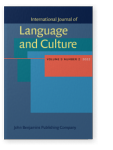Vol. 9:2 (2022) ► pp.177–193
Animal names applied to a person in Maasai society
Cultural norms of interactions influence Maasai people to apply animal names to address each other. This article explains that avoidance of personal names of certain categories of people in Maasai influences the use of animal names. In the theoretical framework of Cultural Linguistics, the author analyzed information from an ethnographic exploration through observations and interviews with Maasai informants in Tanzania. The article shows that Maasai’s categorization of people and avoidance system make senior members accumulate more animals through the process of selecting animal names to use. The patriarchal cultural beliefs and conceptualizations of domestic animals have implications on how animal names are applied between men and women. Only women married to polygamous men use animal names to address each other. There are some lexical, morphological and semantic differences between men and women’s names to mark gender categorizations.
Article outline
- 1.Introduction
- 1.1Cultural linguistic theory and the cultural cognition of Maasai personal names
- 2.Methodology
- 3.Findings
- 3.1Selection of animal names to use as address terms among the Maasai brothers
- 3.2Selection of animal names for address terms between son-in-law and father-in-law
- 3.3Selection of animal names for address terms among Maasai women
- 3.4Categorizations of Maasai men and women’s substitute names
- 3.5Selection of animal names and accumulation of wealth in Maasai community
- 4.Discussion
- 5.Conclusion
- Notes
-
References
